Festivals and competitions can be great ways to experience a new rock climbing area and test your skills. They usually involve meeting new climbers, learning skills from professionals, demoing climbing gear, and enjoying good food and drink and entertainment. And even better, most are very affordable and support climbing-focused nonprofits.
We pulled together a few Midwest outdoor climbing festivals and events taking place this year, all with a variety of formats, and all within driving distance.
Robinson Bluff Spring CPR Competition & Festival – April 15-16, 2023
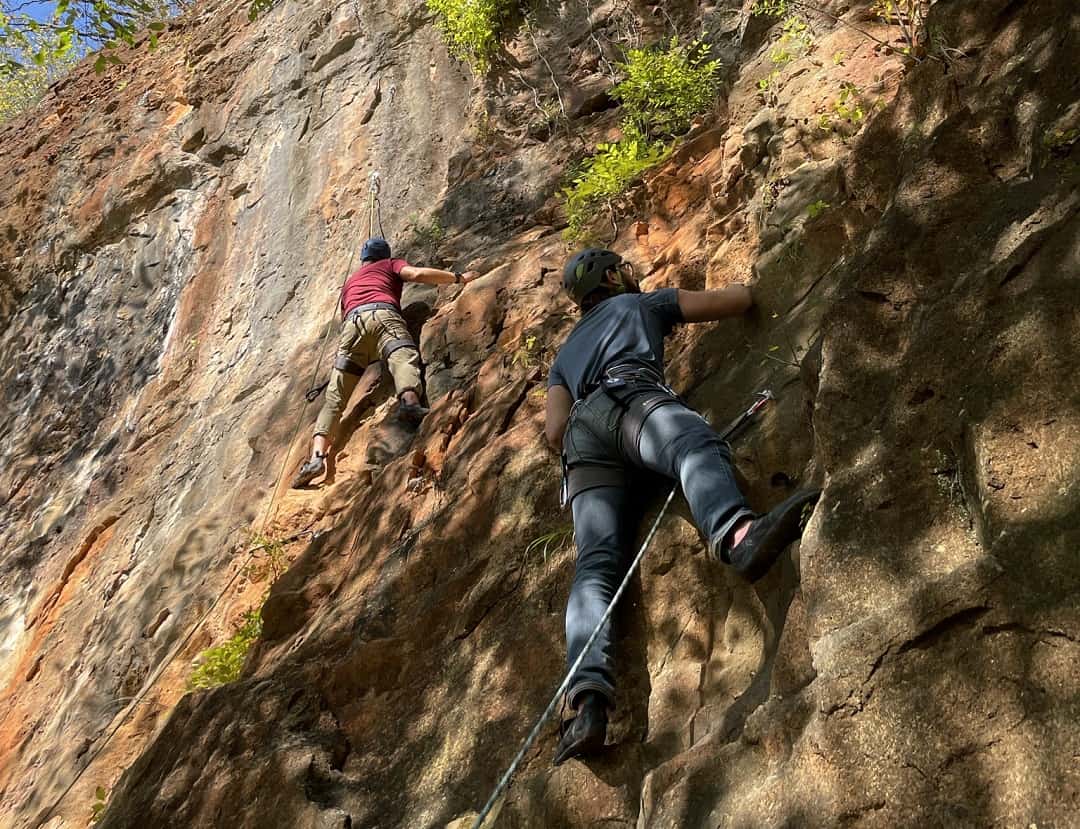
The inaugural CPR event at Robinson Bluff occurred in 2022 and focused solely on climbing. The 2023 edition, however, quickly evolved into a multi-sport competition.
Located about 90 minutes south of St. Louis in Tiff, Missouri, Robinson Bluff opened to climbers in 2018. It sits adjacent to the Big River, and mountain bike trails were added over the past 18 months. So, the facility decided to “do a festival that gets climbers off the wall for a bit and do something else,” said Nick Richards of Eastern Missouri Climbers Association, one of the organizers of the event.
The format includes climbing, biking, and floating (participants can choose to kayak, stand-up paddleboard, or canoe). Competitors’ place in each discipline will equal point(s). Climbing is based on total routes/boulders climbed. Bike and Float is based on fastest time. Prizes were awarded to the top male and female in all three disciplines.
Richards says the organizers are “definitely targeting a lot of climbers, or climbing with x” to attend the event and see a major overlap with mountain biking.
The event doesn’t have a “big party vibe” but still has festival staples such as clinics, good food and drink, a bonfire, yoga, and fellowship with outdoor adventure-loving people.
24 Hours of Horseshoe Hell – September 27-October 1, 2023
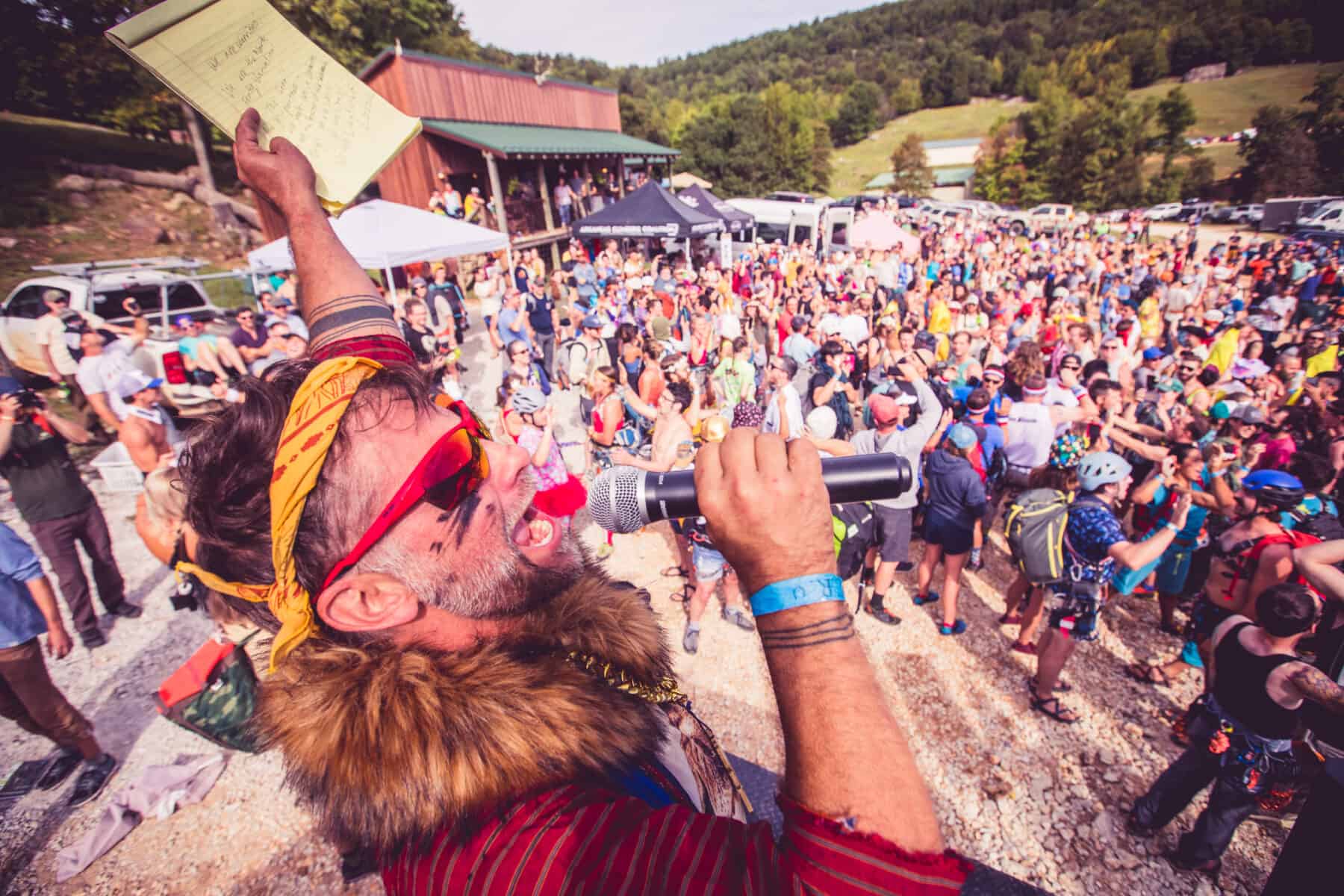
(Lucas Marshall)
In 2006, Andy Chastain and his buddies came up with the idea for 24 Hours of Horseshoe Hell (24HHH) after a long day of climbing at Horseshoe Canyon Ranch in Jasper, Arkansas. Chastain says, “We thought it would be cool to see how many routes we could do in 24 hours, then it evolved into ‘why don’t we try to put on an event and invite all our friends.’”
Now, 17 years later, the event has grown to international appeal with climbers from all over the world attending.
The event format is unique in that competitors climb 24 hours straight. “It’s not as important how hard you can climb, but how long you can climb.” According to Chastain, the premise is simple — climbers have to lead climb a route for points, which means they start at the bottom without a rope already on the climb; the rope is tied to them, and they climb the route clipping protection in the wall as they go. In order to receive points, they have to climb each route clean, without hanging or falling on the rope.
24HHH definitely has a party atmosphere. Chastain says, “It’s costumes, love, laughs, people helping others, eating, drinking, free tattoos, suffering, and community. We’ve on many occasions been called the ‘Burning Man of Rock Climbing.’”
The event would not be possible with the volunteer staff, says Chastain. They come each year to make sure it runs like a machine and have the best time doing it, maybe even more fun than the attendees, he says. The event sponsors are also key, and most of them have stayed on board from the beginning.
“We all live for this event each year,” said Chastain. “We’re a beautiful little cult — a good cult!”
Rocktoberfest – October 5-8, 2023
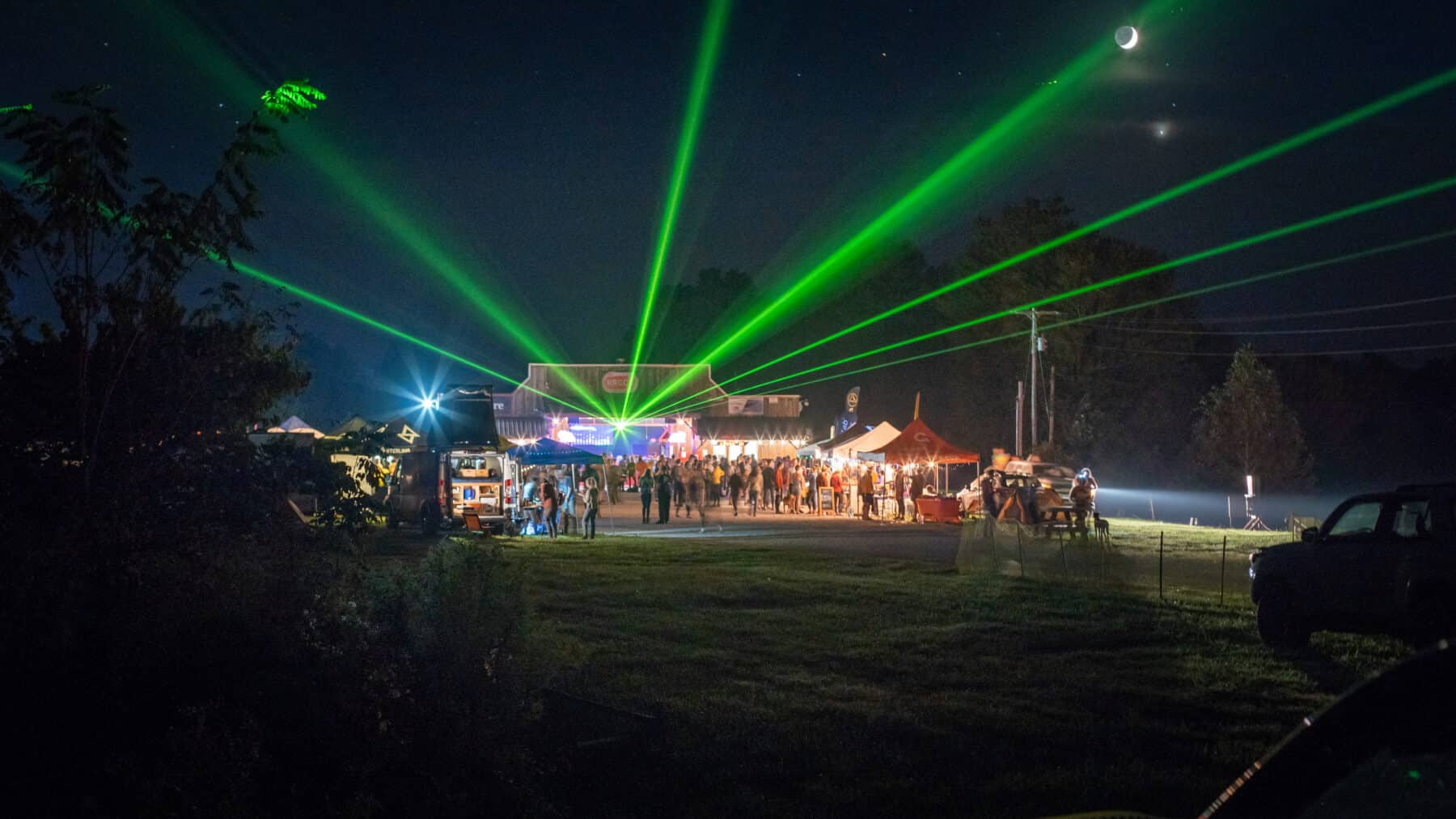
(Mike Wilkinson)
Rocktoberfest began in 2003 as a fundraiser to help pay off the mortgage for property purchased by the Red River Gorge Climbers Coalition (RRGCC).
The event in Campton, Kentucky, started out with a focus on competition, but in 2007 Petzl, a company that specializes in creating gear for vertical sports, brought its RocTrip traveling festival and multiple pro athletes to Rocktoberfest, putting it on the map. After that, the event became more focused on clinics and community building.
Rocktoberfest, which takes place in iconic Red River Gorge, continues to prioritize fundraising and has expanded to the point where it has nearly outgrown the venue. According to executive director Billy Simek, it has sponsors from across the US, plus a few from other countries.
Attendees can expect lots of free swag, and sponsors offer various activities to draw people into their booths. Pro athletes and local climbing guide services teach multiple clinics on Saturday and Sunday, which is a big draw, bringing in nearly 1,400 participants over the course of the weekend.
In 2021, a Thursday evening happy hour was added to the schedule, with Makers sponsoring. This is now a mainstay kickoff to the festival. In 2022, RRGCC partnered with Yosemite Climbing Association, expanding the festival by adding a volunteer day on Sunday.
“Competition is a small part of it, and there are lots of fun activities, but the point of the event is to be a fundraiser,” said Simek. “Sponsors come out for exposure and to showcase new gear, but a big part is giving back to the RRGCC organization.”
Holy Boulders: The Pilgrimage – November 4, 2023
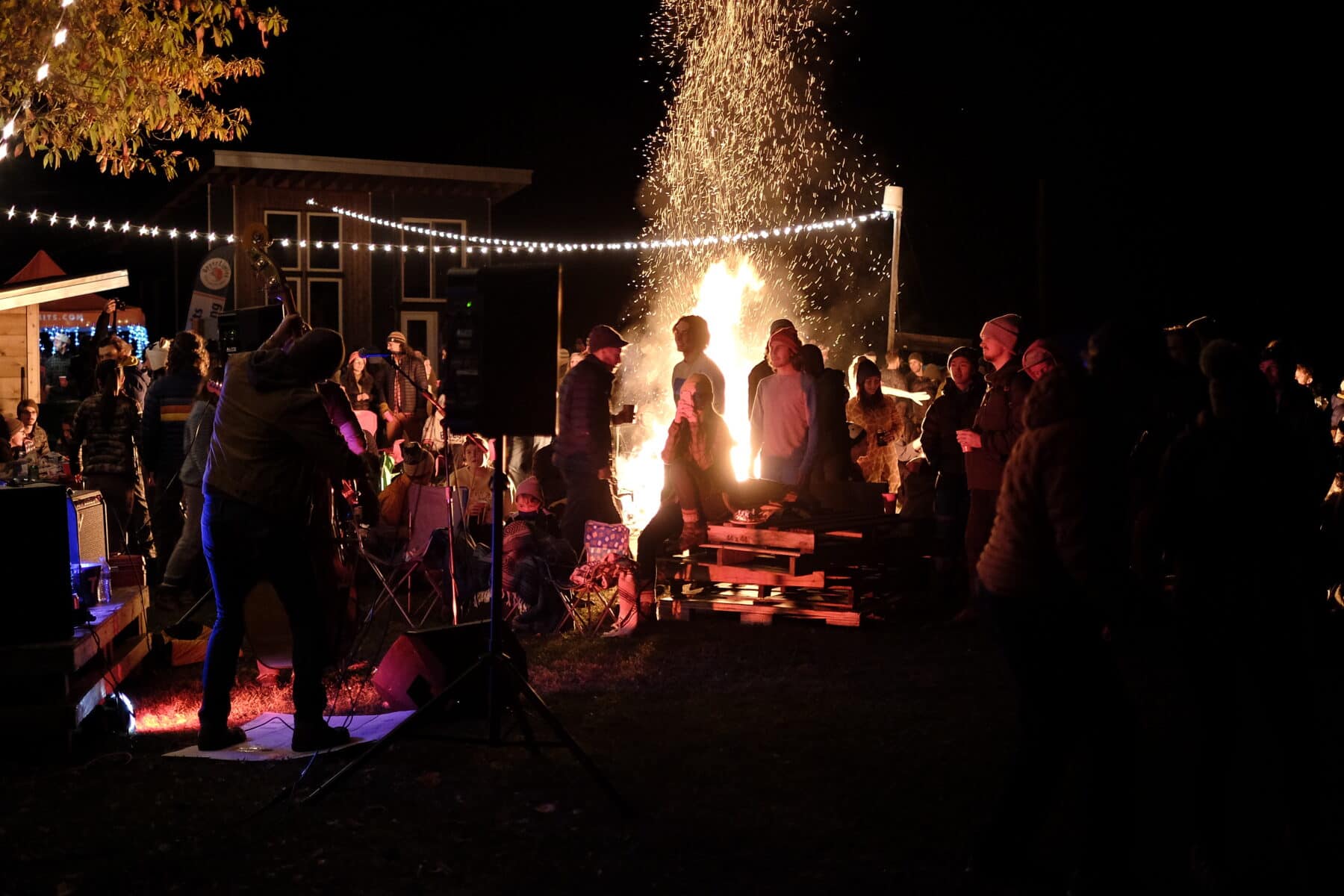
(Jared Harzen)
The Holy Boulders festival in southern Illinois began in 2012 as a fundraising event to pay back the loan the Illinois Climbers Association (ICA) incurred when they purchased the parcel of land where the climbing area sits. About 125 people showed up that year, and the event has consistently grown every year to nearly 400 competitors and another 100 spectators. A couple years ago, the event organizers rebranded to The Pilgrimage because, according to ICA’s Phillip Carrier, “everyone comes and makes the journey every year.”
This event is a bouldering competition, so participants are climbing on car- to house-sized boulders without a rope. (Crash pads are placed on the ground to cushion falls, and people also spot each other.) The climbing area offers about 300 to 400 different boulder problems, varying in difficulty from “super entry level” to “beyond expert.” Each boulder has grades, and points are assigned based on the grades.
Competitors climb throughout the day, choosing the seven hardest boulders they can climb. Categories are subdivided by ability level, and participants self-select their category. The event organizers have added some categories beyond the traditional ability levels: Stonemasters for 40+, Crusty Stonemasters for 50+, and Circuitmasters for those who want to climb as many boulder problems as possible in the allotted time (past participants have set the bar at 120 problems).
During the event, the atmosphere is family-friendly, supportive, and social. Competitors put in a hard effort for 30 seconds to a minute and then rest and hang out, encouraging and challenging each other to push themselves on the next climb.
Once the competition is over, the party starts. Attendees enjoy a big dinner, bonfire, and music by the Swamp Tigers, a local rockabilly band whose lead singer is also a climber. There are games like tug o’ war and pullup competitions, and on-site camping is provided for those who want to keep the party going late into the night.
Carrier says the event “still has a very grassroots feel even though it’s gotten really big.” He says they’ve had people from every state compete, but usually 20 to 30 states are represented each year, with the largest portion from a six-hour radius.
Author: Missy Phegley is a regular contributor to Terrain Magazine.
Top Image: 24 Hours of Horseshoe Hell bouldering rave. (Lucas Marshall)

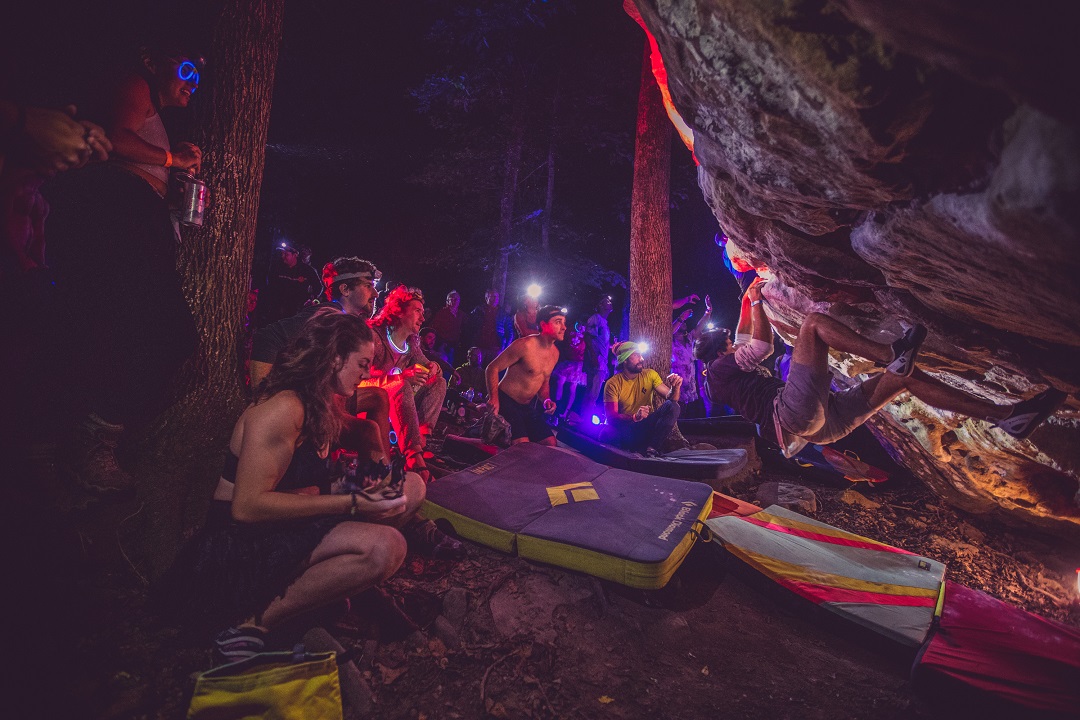
Leave A Comment